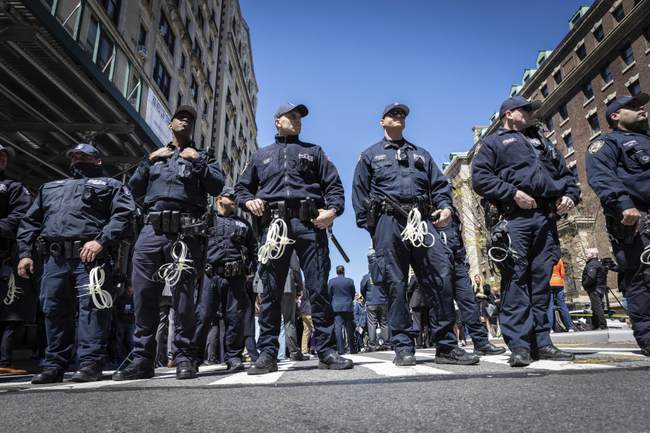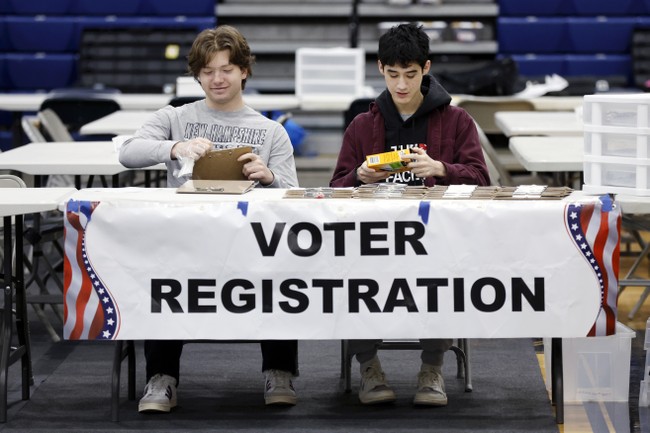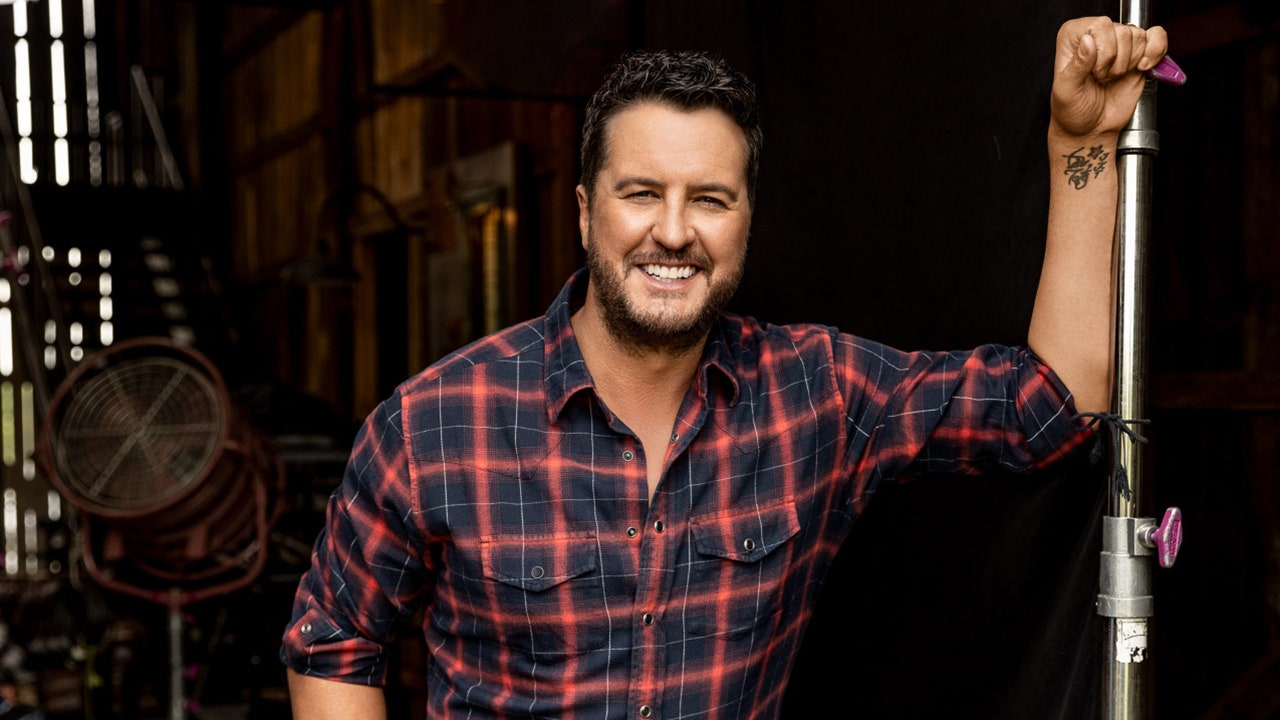MAHA advocates are warning about a bill Georgia lawmakers passed in March that they allege would allow manufacturers of pesticides to escape liability for poisoning customers.
Senate Bill 144 would make it so “that a manufacturer cannot be held liable for failing to warn consumers of health risks above those required by the United States Environmental Protection Agency with respect to pesticides.”
Environmentalists and regenerative farming advocates warn that the bill would be detrimental to public health.
“Stripping our right to be able to sue if we have a different opinion than what the EPA has is really going to be catastrophic for public health, because then we have no recourse whatsoever,” Kelly Ryerson, the founder of American Regenerative and Glyphosate Facts, told the Daily Caller. Ryerson, a Stanford University MBA, has a certificate in public health policy from Stanford Business School.
The bill’s primary sponsor, Republican Georgia State Sen. Sam Watson, pushed back on the idea that the bill would prevent Americans from being able to sue manufacturers.
“It’s dealing with failure to warn, it’s not providing immunity,” Sen. Watson told the Caller. “It’s not preventing anyone to go after [manufacturers] because they thought that a product caused cancer. You can still do that, you just can’t do it for failure to warn of it causing cancer.”
Manufacturers that would be covered under Georgia’s bill include Bayer, who owns Monsanto, the maker of RoundUp. A Georgia jury is fresh off awarding a plaintiff over $2 billion in a judgement against Bayer after he blamed RoundUp for his non-Hodgkin’s lymphoma in a lawsuit.
Why did the Georgia State Legislature rush to pass SB144 aka The Pesticide Bill?
There are $2.1 BILLION reasons why!
Bayer was ordered to pay a plaintiff when they proved his cancer was caused by their pesticide (Round-Up).
Over 60,000 cases are still pending against Bayer.… pic.twitter.com/TH8YPs77yk
— Kylie Jane Kremer (@KylieJaneKremer) March 24, 2025
RoundUp’s active ingredient is glyphosate, the most commonly used pesticide in the United States. The World Health Organization’s International Agency for Research on Cancer (IARC) said glyphosate likely causes cancer in 2015, labelling it as “probably carcinogenic to humans.”
“It says it’s likely and we saw that same report. It doesn’t say it does. It says that it suggests or it may be or probably or could cause,” Sen. Watson told the Caller.
The EPA reached a different conclusion. After a February 2020 review, the agency found “that there are no risks of concern to human health when glyphosate is used in accordance with its current label,” according to its website.
The IARC was accused of manipulating their data in 2017. A draft document of IARC’s 2015 study was unearthed and, according to Reuters, showed the agency dismissed and edited out conclusions contrary to their final report.
Watson claimed that the study which the IARC based its carcinogenic conclusion on also found a number of other common American lifestyle choices increased the risk of cancer.
“If you’ll keep reading in that study it also says that red meat is carcinogenic and night shift work is carcinogenic and a lot of other things that people do are carcinogenic. So, I mean, you need to read the whole study because one studies shift and dictate,” Watson told the Caller.
While the EPA did not concur with the IARC’s conclusion that glyphosate is a carcinogen, Ryerson alleged that the research they based that conclusion on was manipulated by Bayer/Monsanto. (RELATED: RFK Jr. Targets America’s Most Obese State For Aggressive MAHA Reforms)
Wisner Baum, a law firm which Health and Human Services (HHS) Secretary Robert F. Kennedy Jr. once worked for, published a trove of documents that appeared to implicate Monsanto in ghostwriting a number of reports on glyphosate’s toxicity.
Science journal highlights Baum Hedlund’s work un-sealing and exposing the Monsanto Papers. “Scientific misconduct by private firms threatens the integrity of public science, and it threatens to undermine the public’s trust in science.” #ScienceEthics https://t.co/ww31mf94ZW pic.twitter.com/5ibdhgMreV
— Wisner Baum (@WisnerBaum) July 20, 2021
One email published by the firm allegedly shows that Monsanto commissioned scientist David Saltmiras and former Monsanto consultant Larry Keir to recruit respected names to write a review of glyphosate’s toxicity. “[E]ven though we feel confident that glyphosate is not genotoxic, this became a very difficult story to tell given all the complicated ‘noise’ out there,” the correspondence reads.
Keir’s name appears on the review that was eventually published, according to the documents obtained by Wisner Baum.
Other manufacturers that could benefit from the limited liability include Chinese chemical manufacturers. When ChemChina, a Chinese state-controlled chemical manufacturer, bought Swiss AgTech company Syngenta for $43 billion in 2017, it was forced by the U.S. Federal Trade Commission to divest its rights to the company’s paraquat chemical business in the U.S. to an American firm.
However, China is still the primary producer of paraquat used in the U.S. while America is the world’s biggest importer, according to global shipping tracker Volza. The U.S. imports from 4,000 to 5,000 tons of the product annually, making up over 10 percent of China’s export supply, according to agropages.com
Like glyphosate, the EPA found “no dietary risks of concern associated with paraquat when it is used according to the label.” But others have called it “the deadliest chemical in US agriculture.”
National Institutes of Health (NIH) studies have linked the chemical to Parkinson’s disease, finding that people who used paraquat were 2.5 times more likely to develop Parkinson’s. Over 50 countries have banned its use, including China.
Sen. Watson, a vegetable farmer who uses RoundUp himself, argued it’s China’s very stranglehold over the paraquat market that makes SB 144 so necessary.
“If the Chinese become the only manufacturer of a product, you can’t go after them. It’s very difficult to go after a Chinese manufacturer for any kind of negligence claim,” he told the Caller.
“So I feel like they’re already protected, which makes it even more important to keep manufacturers in the United States because those are the ones that we can have recourse if they here in the United States.”
Ryerson disagreed. “I actually don’t care who manufactures it,” she said. “I just don’t want it anywhere in our system.”
Additionally, 99 percent of glyphosate used in the U.S. originated from China in 2024, according to a Farm Business Network survey.
You can’t make this up.
A German pharmaceutical company that helped Hitler during World War 2 (@Bayer) bought Monsanto and is now sending mailers in states saying lawmakers are pro-China if they don’t vote for a bill giving glyphosate legal immunity. https://t.co/6IbbIVD9Xe
— Calley Means (@calleymeans) February 15, 2025
The bill now sits on Republican Georgia Gov. Brian Kemp’s desk for him to sign. “Our office has 40 days following the last day of the legislative session to conduct a thorough review of legislation that received final passage by the Georgia General Assembly. We will make an announcement upon the conclusion of that review process,” a spokesperson for Kemp’s office told the Caller.
Georgia’s legislative session ended April 4, giving the governor until May 14 to make a decision.
The bill represents a test of power for RFK Jr.’s Make America Healthy Again (MAHA) coalition. Self-proclaimed “MAHA moms” have been lobbying hard against its passage, imploring Kemp not to sign it. RFK, who tried and won cases on behalf of Monsanto victims in his past life as an attorney, has yet to publicly comment on the bill.
The Daily Caller reached out to HHS to get Secretary Kennedy’s thoughts on the bill but did not receive a response.
Read the full article here











![Sanctuary City Mayor Calls Law Enforcement ‘a Sickness’ in His Crime-Ravaged City [WATCH] Sanctuary City Mayor Calls Law Enforcement ‘a Sickness’ in His Crime-Ravaged City [WATCH]](https://www.lifezette.com/wp-content/uploads/2025/09/2025.09.03-01.19-lifezette-68b8406c1f71f.jpg)
